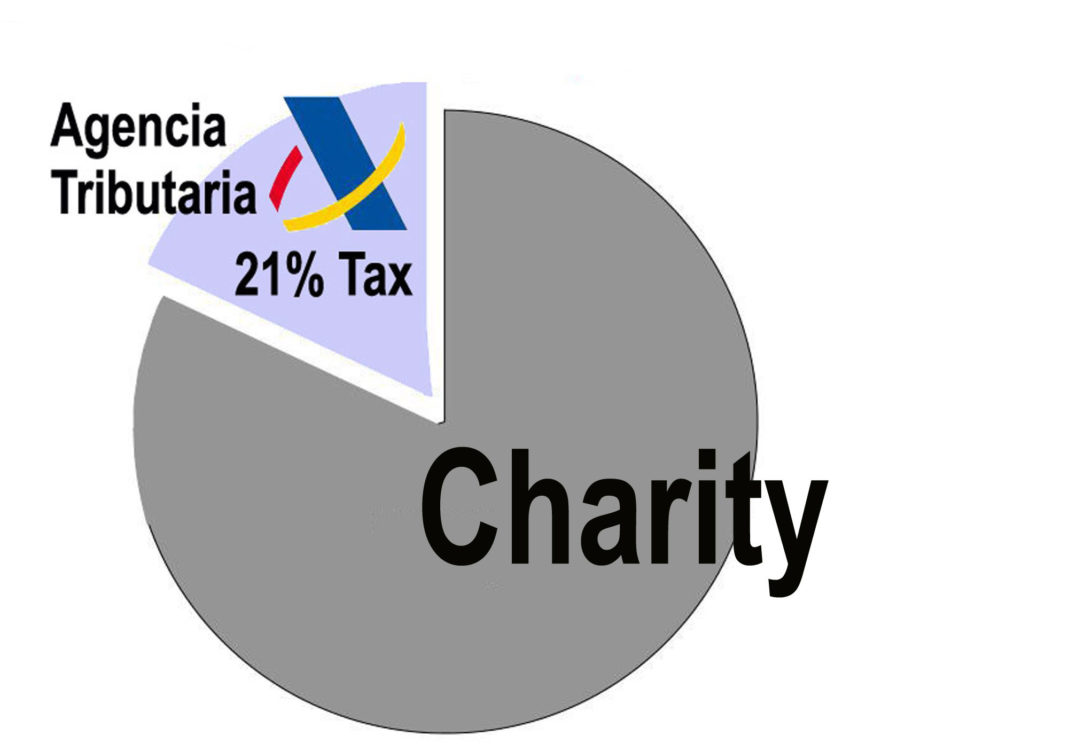By Tony Mayes
These were the words of David Young, president of the Costa Blanca-based charity Reach Out, when he learned that charities have to pay the 21% IVA tax imposed on businesses in Spain.
He has been joined by another charity, Help at Home Costa Blanca to launch a campaign to try to persuade the Spanish government to treat charities in Spain in the same way as in some other countries in Europe and make them tax exempt.
Last year alone both charities coughed up almost 20,000 euros each – pouring it into Government coffers. When the tax money is added up among all the charities which operate in Spain the tax squeezed out of them runs into millions of euros.
David met his opposite number for the charity Help at Home, Carmen Perez, this week to plan a course of action to put pressure on the Spanish government to change the rules.
They want to hear from all charities so that they can join together to campaign for change.
He said: “The situation is ridiculous. When a garment or sale item is originally made, IVA is paid on it. Then IVA is paid again when a retailer sells that item to a customer. The customer donates the item to a charity shop which again has to pay IVA on that very same item, which means that the government has collected tax on that item three times. It’s ridiculous.”
Reach Out, which is based in Torrevieja, looks after the needy and the homeless, many of whom are referred to the charity from social services.
The charity gives these people a hearty breakfast, lunch and a goody bag to help them with food over the weekend. In addition they provide showering facilities, washing clothes, providing fresh clothes and shoes when required, as well as helping with their paperwork needs.
Doing this work saves the local council money, and if the government did not snatch 21% of their income in tax, the charities would be able to do much more.
The coronavirus alarm meant that the charity’s shop has been closed for three months, with not one cent of revenue coming in, but the need for help did not go away, in fact it increased.
David commented: The Spanish government either doesn’t understand what charity is, or chooses not to. What they are doing is raping charities, taking money out of our bank accounts, forcing us to pay money which otherwise could be spent helping people in need. People donating their unwanted items to us do not expect that a quarter of the money we raise from the items is syphoned off for government to fritter away.”
To be able to function legally charities have to form an Association, and then they are treated as a business. It is only since ex-pats began living in Spain that the concept of charity shops arrived in the country. By contrast, in Britain where charities have been around for decades, they are exempt from tax and council tax which enables them to do far more with the money they raise.
Carmen commented: “Although we are not providing a service on behalf of local councils, we are helping many people in need, taking them to and from hospitals and doctors, doing shopping and numerous chores when they have no help from another source. It’s so sad that we had to give almost 20,000 euros to the government last year for no good reason. We are not a business, we are not doing work to make a profit but to help others and the government needs to understand that.”





